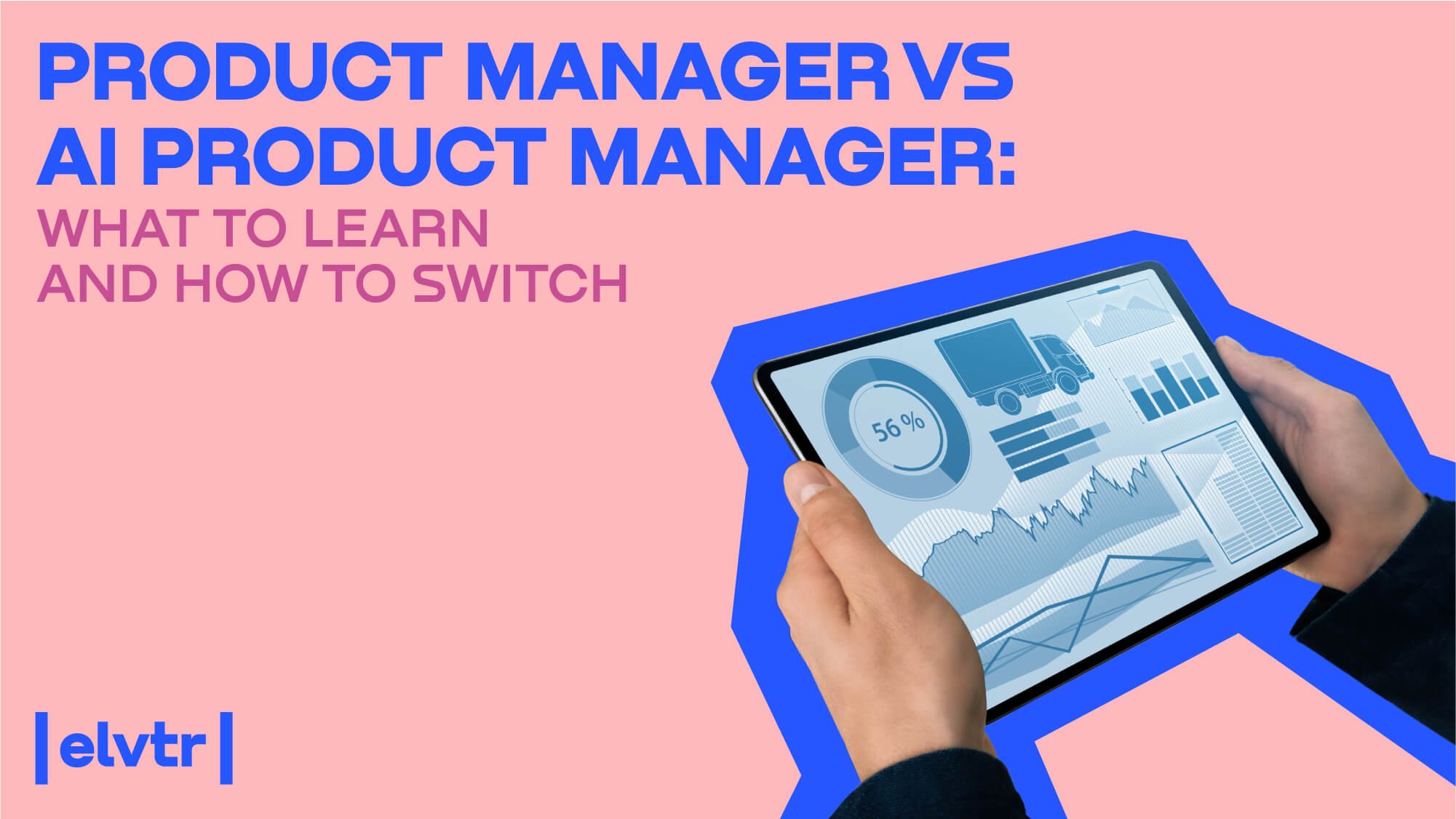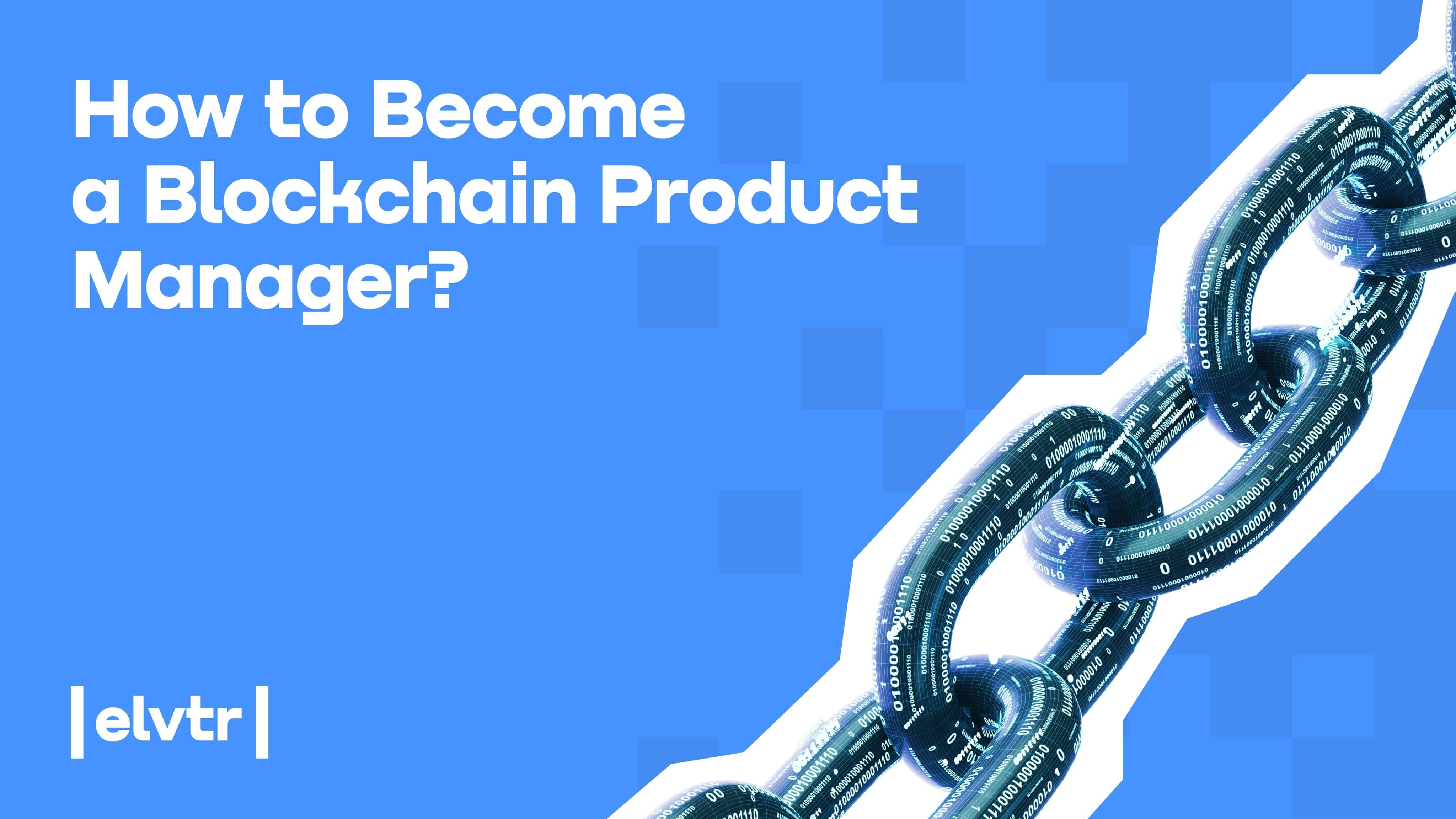- MAIN PAGE
- – elvtr magazine – PRODUCT MANAGER VS AI PRODUCT MANAGER: WHAT TO LEARN AND HOW TO SWITCH
PRODUCT MANAGER VS AI PRODUCT MANAGER: WHAT TO LEARN AND HOW TO SWITCH

Netflix recently advertised a position for an AI product manager, offering a remarkable $900k annual salary. This move underscores the pivotal role artificial intelligence is set to play in the evolving landscape of product management.
In this feature, we delve into the realm of AI Product Management and explore how artificial intelligence is weaving into current product management processes.
AI Product Managers vs. Traditional Product Managers: Delineating the Differences
At the heart of a product's lifecycle is the product manager. These professionals don multiple roles—market researcher, strategist, communicator, and user advocate.
They grapple with the WHAT, WHY, and WHO of a product: WHAT should be built? WHY is it essential? WHO is the target audience, and what defines success for the product?
Navigating these queries involves a product manager:
- Comprehending the needs of customers and conveying them to the team.
- Charting a product roadmap that encapsulates the product strategy.
- Detailing product features and sequencing their launches.
- Establishing key metrics to evaluate product success.
- Collaborating with cross-functional teams to formulate and execute product strategies.
- Tracking product performance to uncover avenues for enhancement and growth.
- Rigorously testing, monitoring, and evaluating new product features.
Fundamentally, a product manager discerns the users' requirements, morphs them into a design or MVP (Minimum Viable Product), directs a development team in crafting a product that addresses those needs, and continuously refines the product to ensure its continued relevance.
An Artificial Intelligence Product Manager, while embodying the competencies listed above, must possess a profound grasp of the intricate technicalities of artificial intelligence (AI) and machine learning (ML). This includes understanding data collection, modeling, testing, deployment, and ongoing monitoring.
Furthermore, the approach of an AI or Machine Learning Product Manager towards their products varies significantly due to:
- Complexity and Uncertainty: AI products demand heightened experimentation, validation, and iterative processes to pinpoint the best solutions.
- Interdisciplinary Collaboration: AI products necessitate collaboration with diverse teams, including data scientists, data engineers, designers, ethical consultants, and others. They also mandate more extensive stakeholder consensus and education to establish mutual goals and apprehend the potentials and limitations of AI.
- Adaptability and Dynamism: AI products have the innate ability to evolve based on data and user feedback. However, post-launch, they require diligent oversight to guarantee their efficiency, reliability, and fairness.
Five Indispensable Skills for an Aspiring AI/ML Product Manager
Contemplating the leap from Product Manager to AI/ML Product Manager? Embark confidently with these vital competencies:
- Understanding AI/ML: AI/ML Product Managers should be versed in AI and ML fundamentals. While coding algorithms isn't a prerequisite, a clear understanding of their mechanics is crucial for informed product decisions.
- Strategic Thinking & Data-Driven Decision Making: Often, AI/ML Product Managers work directly with intricate datasets, necessitating a profound understanding of statistical analysis and data modeling.
- Team Collaboration: These professionals routinely liaise with data scientists, ML engineers, and data engineers. They must be fluent in the terminologies and processes distinctive to these roles.
- Algorithm Evaluation: Proficiency in evaluating machine learning models, understanding metrics like precision, recall, and AUC-ROC, and recognizing their influence on user experience is imperative.
- Ethics and Bias Awareness: AI/ML Product Managers must be acutely conscious of their product's ethical dimensions. Recognizing and mitigating biases inadvertently incorporated into ML models is paramount.
For instance, biases absorbed from vast literary and media sources can result in AI tools that lack progressiveness in addressing gender and racial issues. This was evident when Amazon's recruitment tool displayed gender bias. In the U.S., racial bias surfaced in the widely-used AI algorithm COMPAS, which assesses recidivism probabilities. As per ProPublica's analysis, this system exhibited skewed predictions against black defendants.
AI's Transformative Impact on Product Management
- Market Research: AI algorithms can sift through voluminous data to discern market patterns, offering innovative solutions and unparalleled insights. Such capabilities empower product managers to better gauge customer desires and challenges. In fact, 64% of marketing experts recognize AI as a cornerstone of their strategies. Prominent tools: Poll the People, SimilarWeb, Tableau.
- Trends Prediction: AI-driven tools facilitate predicting market trends, product demand, or when users might abandon an app or terminate a subscription, allowing preemptive actions. Top trend analysis tools: Brandwatch Consumer Intelligence, Microsoft Power BI, Meltwater, IBM Cognos Analytics, TIBCO Spotfire, Zoho Analytics.
- Product Development: ML algorithms optimize decisions regarding product features and functionalities, factoring in user feedback and usage data. Beneficial AI solutions: Jam, ChatGPT, Mixpanel, and Bard.
- Customer Feedback: AI-augmented platforms offer instantaneous feedback collection, analysis, and actionable insights. This assists product managers in enhancing product quality and user satisfaction. Popular platforms: Zigpoll, Kraftful, and Holler.
- Data Analysis: AI algorithms equip product managers with data analysis tools, facilitating accurate predictions about product performance, pricing strategies, and sales, ensuring optimal product strategies and quantifiable ROI. Top-tier tools: Tableau, IBM Watson Analytics, Microsoft Azure Machine Learning.
Looking to carve a niche in AI Product Management? Enroll in our 'Product Management for AI & ML' course, refining your expertise with Jyothi Nookula, Director of Product Management, AI & ML at Etsy.
Can AI Replace Product Managers?
Neural networks are becoming more prevalent in personnel management. Take, for instance, how artificial intelligence now coordinates Uber drivers and oversees operations in Amazon warehouses and call centers. Experts believe that the integration of neural networks in human resource management will only intensify.
Recently, IBM halted the recruitment process for 7,800 positions, anticipating that AI will soon fill many roles. IBM's executive director doesn't dismiss the idea that, within 5 years, 30% of these roles might be taken over by artificial intelligence and automation.
The rapid advancements in AI have raised questions about its capability to take on some of the tasks typically reserved for a product manager. However, there are elements of this role that artificial intelligence might struggle to replicate or even ever replace.
- Complex Decision-Making: Although AI excels in processing large datasets and generating insights, strategic decision-making demands more. It requires an understanding of broader contexts, market trends, and user behaviors, which goes beyond mere data.
While current AI systems can control machinery and outperform humans in games like chess, they falter in some fundamental areas. For instance, even the most advanced AI struggles with understanding basic processes, such as what transpires when logs are stacked in a fireplace and lit. - Empathy and User Understanding: A foundational aspect of successful product management lies in empathizing with users, grasping their concerns and needs. The intrinsic human trait of empathy is absent in AI, hindering its ability to genuinely understand user emotions and requirements.
For instance, Amazon has been leveraging AI systems to oversee and manage staff in its warehouses. But there have been concerns, as reports suggest that AI-driven supervisors push workers to their limits. If targets aren't met, the system might automatically terminate their contracts. - Cross-Functional Collaboration & Relationship Building: Product managers serve as a bridge, connecting diverse teams and steering them towards shared objectives. Their interpersonal and communication skills stimulate cooperation and innovation, qualities not within AI's current reach.
- Creativity, Innovation, and Intuition: Product managers bring a unique creative flair to problem-solving and conceptualization. They can imagine groundbreaking features and intelligent experiences that transcend the boundaries of mere data, offering distinctive product advantages.
If you introduce AI to the styles of Georgia O'Keeffe, Vincent Van Gogh, or Jackson Pollock, it can mimic these artists. Yet, AI still requires human direction for genuine creativity. Ross Goodwin, in collaboration with director Oscar Sharp, demonstrated this when they produced a short film scripted by an AI. Goodwin utilized LSTM, a neural network adept at creating extensive sentences and even full paragraphs.
After training the AI, dubbed Benjamin, on a series of sci-fi scripts, it generated its unique narrative. Sharp translated this script into a film. However, the resulting storyline was incoherent.
- Ethical Decision-Making: Product managers constantly assess the implications of their choices on users, society, and their companies, offering a multifaceted perspective rooted in human values.
The realm of AI Product Management is exhilarating and holds promise for future developments. It's been transformative, prompting a reevaluation of conventional methods.
Are you aiming to elevate your product management career? Deepen your customer insights with real-world AI/ML product applications in our Product Management for AI & ML course. Immerse yourself and acquire the hands-on expertise you need.


